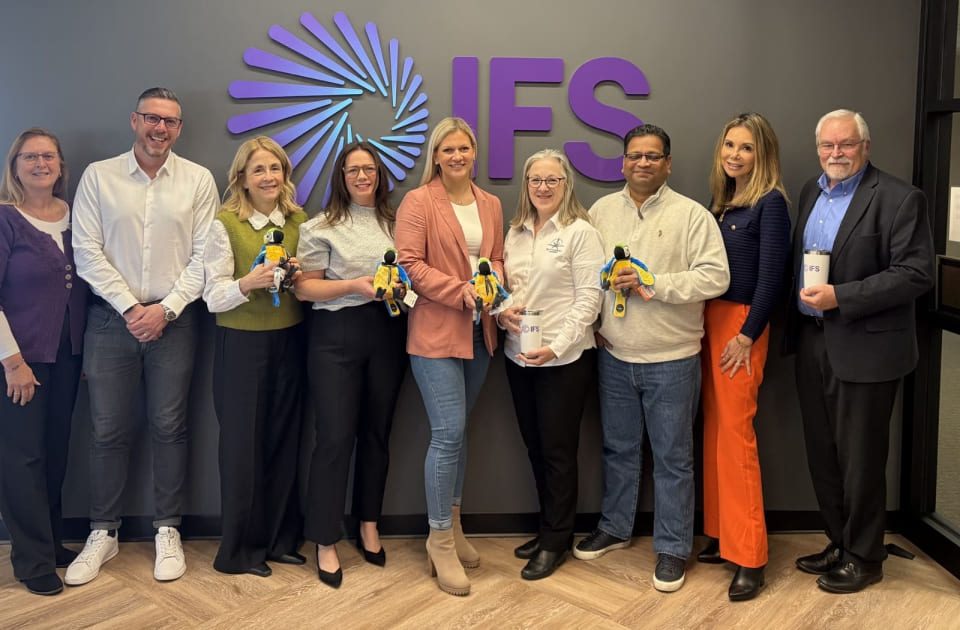
A Look at the Capabilities of IFS in the Construction Industry’s Sub-Sectors
February 13, 2023
ERP Today Live! With IFS – Manufacturing Predictions for 2023
February 16, 2023Global energy supply constraints are becoming more intense than ever.
Energy companies are continuously looking to maximize their efficiency to offer customers relief from ever-rising costs and at times, inconsistent levels of customer service. These companies often turn to enterprise resource planning (ERP) software to achieve innovations in this sector.
One of the most popular ERP platforms for the energy sector is IFS, which offers powerful tools to help organizations manage their resources and operations. In this article, we’ll take a quick look into how energy companies can utilize IFS to streamline their processes and maximize their growth.
Before we begin, what exactly does IFS do?
IFS is an enterprise resource planning (ERP) solution that helps organizations manage their business operations. It provides a unified platform for:
- Enterprise resource planning
- Customer relationship management
- Project management
- Service management
- Supply chain management
How IFS aids energy companies
IFS provides energy companies with a comprehensive suite of integrated applications designed to help them streamline and automate their operations. It offers them greater visibility into their operations, allowing them to make informed decisions and improve their efficiency. IFS can help these businesses reduce costs by automating processes, eliminating manual errors, and improving operational efficiency.
Additionally, IFS can help energy companies increase their levels of effective customer service. This enables them to respond to customer inquiries quickly and effectively.
IFS solutions provide firms in the energy sector with the ability to control their finances by providing them with the insights needed to make sound financial decisions.
3 main benefits of IFS to energy companies
Below we explore three key benefits energy firms can take full advantage of when acquiring IFS solutions:
1. Improved customer service
Through IFS software, companies can proactively monitor customer service requests, and at the same time, they can address issues before they become larger problems. Energy providers can streamline their customer service processes as they can respond to customer inquiries more quickly and accurately. By utilizing IFS, energy companies can create a more personalized customer experience, which can help to improve customer satisfaction and loyalty.
2. Increased efficiency
IFS can help energy companies automate processes and streamline operations, reducing the need for manual labor and increasing overall efficiency. It also has powerful analytics tools that can provide real-time information on business operations. This helps organizations to quickly identify and address issues, and make informed decisions on how to best allocate resources for maximum efficiency.
3. Reduced costs
Automating manual processes lets businesses reduce their daily operational costs. Utilizing IFS software prevents energy providers from having to invest more in hiring additional employees, office space, and other needed resources to support their day-to-day work.
Energy companies that are using IFS
Here are two examples of energy companies that have successfully integrated IFS into their daily work:
Torresol Energy
As a new, well-capitalized venture, Torresol Energy had a unique opportunity. It had no installed base of technologies or applications. With a “clean sheet” in hand, the company chose the industrial software application that best suited its diverse operations. Its required functionality included what is normally associated with engineering, procurement, and construction (EPC) companies, as well as plant owner-operators. Torresol Energy chose IFS Applications because it is a single, integrated system that has relevance throughout a global asset’s lifecycle—from design and development through operations and maintenance. This company is now using IFS Applications with components for financials, project management, document management, asset management, and supply chain.
Pori Energia
Pori Energia Oy sells its customers electricity and provides energy, district heating and cooling, maintenance, contracting, and wind power services. Its subsidiary, Pori Energia Sähköverkot Oy takes care of power transmission in the City of Pori. In May 2018, Pori Energia introduced IFS. The ERP system has enhanced operations for Pori Energia and made the development of the company’s business more successful through various means, including in the following areas:
- Information flows more efficiently and faster between actions and offices
- The automation of data logging is better
- Financial administration becomes more efficient and paper-free
- More efficient project management
"Our old information system has come to the end of its life. We needed a new, modern, flexible, and easily upgradable ERP system. IFS won the tendering and met our needs best. Now, the system is used in our financial administration, project management, purchasing, warehousing, and sales. In the future, the system will also extend to our maintenance activities."
PETRI MÄKILEHTO ICT DEVELOPMENT MANAGER, PORI ENERGIA OY
Final thoughts
With IFS, energy companies can optimize their operations with powerful analytics, forecasting, and planning tools. It lets them anticipate and manage change, allowing them to be more agile and competitive in the marketplace. IFS solutions provide insights into energy usage, enabling businesses to make informed decisions about energy consumption and cost savings. Through automated workflows and integrated systems, energy providers can reduce their operational costs while boosting their efficiency. Ultimately, energy companies can effectively manage their business operations, reduce risk, and increase their competitive edge. To find out more about RutterKey Solutions' experience in the energy sector, contact us for a discussion by filling out the contact form below and one of our team will be in touch.


